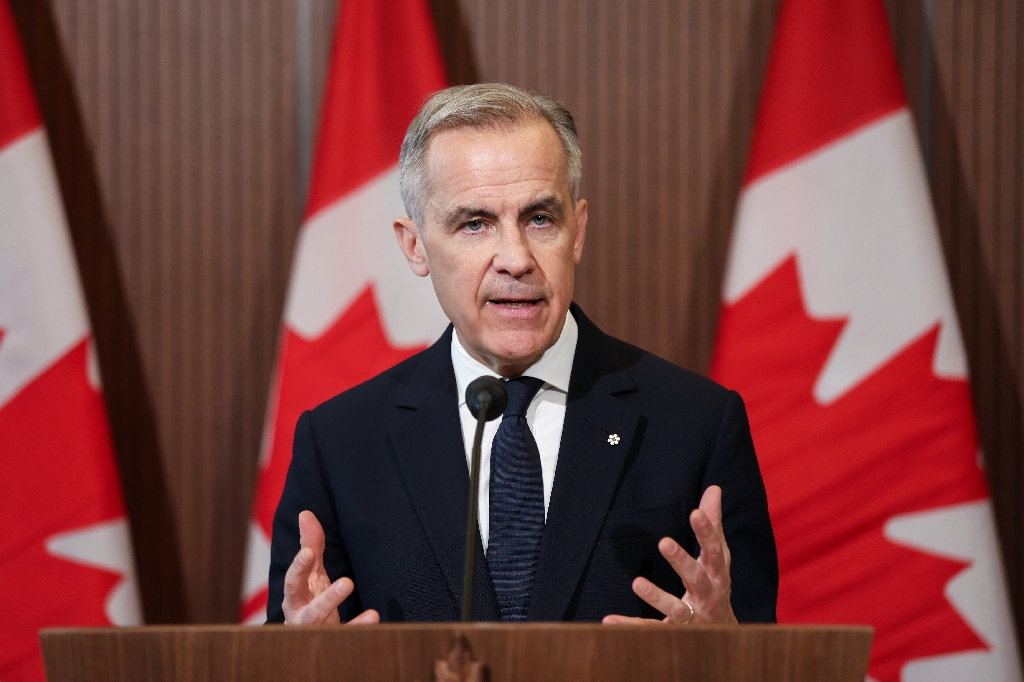US lawmakers were to vote Tuesday on a stop-gap funding bill as the government teeters on the brink of another shutdown crisis at a time of deep divisions over funding for Ukraine and Israel.
With a deadline to reach a deal on funding the government coming in just three days, the newly installed — and inexperienced — Republican speaker, Mike Johnson, has his work cut out to overcome chaos provoked by the party’s hard-right.
Neither the Democratic-led Senate nor the Republican House of Representatives have passed 2024 budgets for the various federal departments that are needed to keep the government open past midnight Friday into Saturday.
Without more time being carved out for negotiation in Congress, the world’s largest economy will instantly begin pumping the brakes — with up to 1.5 million public workers sent home without pay.
Most federal facilities, including national parks, would close and the air traffic control system could be severely impacted, leaving Americans’ Thanksgiving travel plans in chaos.
Johnson has unveiled an untested, complex two-tiered stop-gap funding measure, dubbed a “laddered continuing resolution (CR),” with timelines that essentially put off the problem until January of 2024 — a presidential election year.
“I’ve been in the job less than three weeks. I can’t turn (around) an aircraft carrier overnight,” Johnson told reporters as he defended the plan, which sets up separate funding deadlines next year for different parts of the government.
“But this was a very important first step to get us to the next stage, so that we can change how Washington works.”
Strategists in both parties are expecting the temporary measure to pass in a vote due in the late afternoon, with sizable objections from the right likely to be canceled out by support from Democrats. Johnson sold his speakership on his conservative credentials but his plan includes none of the policy priorities or drastic spending cuts his right flank is pushing for, sparking rebukes from a few dozen hardliners.
The right-wing House Freedom Caucus, which accounts for about one-fifth of the House Republican conference, released a statement Tuesday opposing the measure, which it said lacked “a single meaningful win for the American people.”
The White House initially panned the proposal as “unserious” because of its complex structure, but Democratic President Joe Biden remains open to signing it into law.
Disarray –
Democrats had pressed for their own add-ons — including aid for Israel, Ukraine and Taiwan — but each now looks set to be dealt with separately, with a $61 billion request from the White House for Kyiv looking particularly precarious amid conservative opposition.
Johnson is banking on impatience with the chaos of recent months — plus the looming holiday — to work in his favor. Washington is now well-acquainted with these last-minute battles over funding, and often finds a compromise just before the deadline, or shortly after.
But it was plunged into disarray over its last deadline, at the end of September.
Republican allies of former president Donald Trump, furious that their leadership reached a deal with Biden to extend funding, successfully moved to oust Johnson’s predecessor, Kevin McCarthy.
The historic rebellion left the lower chamber paralyzed for three weeks as Republicans struggled to find a replacement leader, even as the deadly Hamas attack on Israel and war in Ukraine spurred calls for quick congressional action.
If the latest stop-gap passes the House, it still needs approval from the upper chamber of Congress, where senators on both sides of the aisle have voiced tentative support.
“So far, I am heartened — cautiously so — that Speaker Johnson is moving forward with a CR that omits precisely the sort of hard-right cuts that would have been nonstarters for Democrats,” said Senate Majority Leader Chuck Schumer. – Frankie TAGGART





